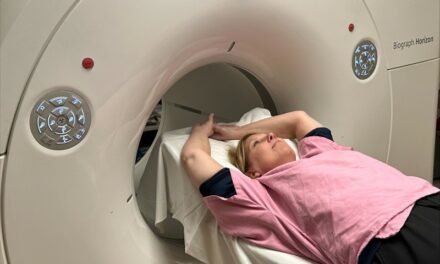Ontario, Canada-based Radialis Medical announces that it has submitted a U.S. FDA 510(k) premarket notification for the Radialis PET Camera, an organ-targeted PET system.
“Compared to whole-body PET scanners, an organ-targeted PET camera positions detectors in close proximity to the organ of interest for a higher-quality image of a smaller field of view,” says Michael Waterston, CEO of Radialis Medical. “Our compact, high-resolution PET camera would be an ideal addition to clinics with whole-body PET systems due to its improved sensitivity, spatial resolution, and flexibility enabling precision imaging of multiple organs with potentially as little as one-tenth the radiotracer dose.”
Radialis Medical’s planar dual-head, organ-targeted PET system employs a silicon photomultiplier-based detector array using patented light-sharing technology to localize radiation emission. Moreover, the detector electronics have integrated cooling to enhance signal quality (patent pending), and the high-throughput data acquisition is optimized for low-dose imaging.
“Emerging radiotracers being developed for PET imaging allow specific disease processes to be visualized and facilitate precision medicine. The Radialis PET Camera is the first organ-targeted PET system focused on low-dose PET imaging of multiple diseases,” says Alla Reznik, PhD, professor and Tier 1 Canada research chair in physics of radiation medical imaging at the Ontario-based Lakehead University and a scientist at the Thunder Bay Regional Health Research Institute. She helped develop the underlying technology of the system.
“The submission of the 510(K) application is a great milestone to achieve as Radialis moves to develop their novel cancer detection imaging equipment. Equally exciting is the development of manufacturing facilities in Thunder Bay to produce this new medical device,” says Andrew P. Dean, vice-president, research and innovation, Lakehead University.






